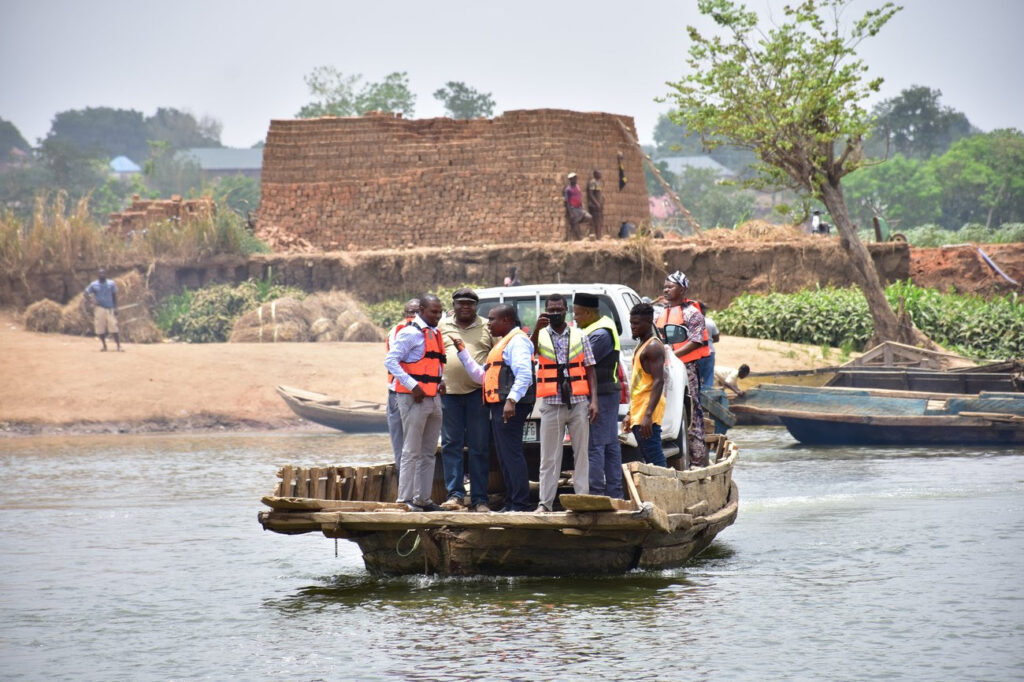As you know, I’m on the board of directors of the AIDS Healthcare Foundation. Since we have multiple clinics in Africa, there’s symbiosis with my ‘Celebrating West Africa’ initiative. One of the countries I visited on my trip was Nigeria. AHF has over 27,000 clients there. Here’s an interesting story.
After working more than a decade in Benue State, Nigeria – a region that has suffered notoriously high HIV prevalence rates in the past – our AHF Nigeria team is seeing their hard work paying off with a roughly 50% drop since the team has been there.
During a 2019 visit to Benue, AHF President Michael Weinstein had the chance to meet with numerous clients who benefit from AHF’s support. Among them was Shine Chado (pictured below) who wanted to personally convey her appreciation for her life being saved thanks to the care provided by the Nigeria team.
“At school, our teachers ordered us to assemble for HIV tests. When they told me I was HIV positive, I was ostracized. I was stigmatized, at home and away,” said Shine. “I no longer had friends in school. It was worse at home. They had my things – spoon, plate, cup – separated from everyone else. I started living like an animal among human beings.”
“At age 10, I started going to the facility alone to pick my ARVs. I wasn’t doing well on treatment, due to the lack of food and, majorly, care and love. That was when the nurses noticed I was not doing well. I explained my condition, and AHF embraced and adopted me. My school was changed. They started providing support to me. They took care of my feeding and clothed me. I thank AHF.”
Operations in Nigeria began in cooperation with the Gbajimba local government, a remote location in Benue state, in 2011, where there was a heightened need and HIV prevalence was reported at over 9%.
“Benue was the first place that AHF was sent by the government in Nigeria, and we have been a big contributor in bringing HIV prevalence down from nearly 17% [in 1999] to now less than 5%,” said AHF President Michael Weinstein. “Benue is a challenging place with a very bad security situation and extreme poverty, yet we made a significant difference. I had the opportunity to see it with my own eyes and experience the appreciation of both the local and national governments.”
“We commend the significant progress in Benue State and are proud to have played a part in achieving this remarkable milestone. Our involvement in the community revitalized the Gbajimba General Hospital, and we facilitated access to clean water by installing a borehole, which serves the community to date,” said Dr. Penninah Iutung, AHF Africa Bureau Chief. “We are pleased with the successful collaboration with the Benue State Government, the State Ministry of Health, relevant agencies, such as BENSACA, and the collective efforts of partners, culminating in this success.”
Over the past nearly thirteen years, AHF Nigeria has expanded to 153 health facilities in seven states.
“Benue State is an excellent example and a model that showcases what can be achieved in an environment driven by a common purpose, altruistic partnerships, and importantly—the patient community,” said AHF Nigeria Country Program Director Dr. Echey Ijezie.
Benue is comprised of many rural villages and houses with one of the highest rates of displaced people nationwide, in addition to being the site of conflict, kidnappings, and other violence. AHF clients in Benue make up well over 50% of the Nigeria team’s more than 27,000 clients.


